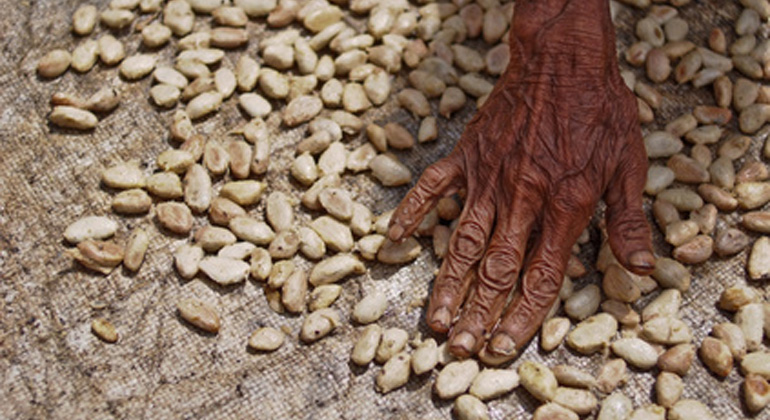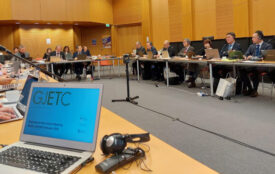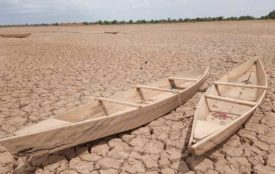Urgent action needed to prevent famine in South Sudan
People falling ill from eating grasses and weeds. Oxfam today called for urgent action to prevent millions of people being hit by famine in South Sudan.
The warning follows a report last week from the Famine Early Warning Network (FEWSNET) which said that a fifth of households in Pibor could already be classed as hitting famine levels of hunger. Four years of conflict have depleted food stocks and severely weakened the ability of communities across the country to withstand shocks.
Pibor, which sits in Boma state in the east of the country, has also seen food availability plummet after pests and flooding destroyed harvests. Boma has also frequent and violent cattle raids with neighbouring states. As the rainy season sets in, much of the food people depend on has to be flown in from Juba, making it unaffordable for many.
South Sudan was hit by a severe hunger crisis in 2017 with Leer and Mayendit declared in famine. A massive aid effort helped save lives and avert an even greater crisis but with a last year’s poor harvest and this year’s not due at least until July, South Sudan is facing catastrophe again.
Nicolo Di Marzo, Oxfam acting Country Director in South Sudan said:
“Waiting for a formal declaration of famine is not good enough. People are already starving and desperate. A woman in Pibor said that her family have resorted to cooking grasses and weeds that are making them sick – but that they have no choice if they want to survive.”
“Aid efforts have so far kept famine at bay, but the need is growing at such an alarming rate that Oxfam and other aid organisations are struggling to keep up. We are seeing similarly worrying trends across the country. This is not an isolated problem. Urgent action is needed now to save lives in Pibor and across South Sudan.”
Oxfam has deployed emergency response teams to support nutrition centres across Pibor, providing clean water and soap, and working closely with communities to help avoid water-borne diseases like cholera and diarrhoea which can be major killers when people are malnourished.
Meanwhile, the latest round of peace talks in Addis Ababa this week has failed to bring an agreement to end four years of civil war. Any continuation of the conflict will mean more people driven from their lands, more people unable to make a living and more people going hungry.
Di Marzo said: “Without peace hunger will continue to haunt South Sudan. As well as urgently stepping up humanitarian support, the regional and wider international community must throw their weight into reinvigorating and redoubling diplomatic action to bring peace to South Sudan.”
- Oxfam is reaching more than 550,000 people in South Sudan, delivering safe drinking water and food, helping people to make a living, and giving people support to keep their families safe from disease.
- The FEWSNET report, ‘Recent rapid assessment indicates Catastrophic (IPC Phase 5) outcomes in Pibor’ included data collected in assessments by REACH.








